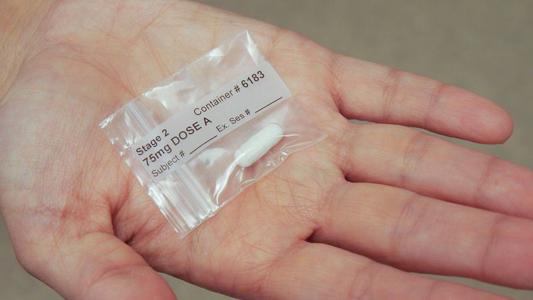A new app that uses cognitive behavioral therapy (CBT) to treat irritable bowel syndrome (IBS) has shown promise in a clinical trial, relieving participants’ symptoms and improving their quality of life.
The disorder: IBS is an intestinal disorder characterized by chronic abdominal pain and unpredictable bowel movements, with sufferers often swinging between bouts of diarrhea and constipation.
These symptoms can dramatically affect a person’s quality of life and mental health, and often lead to anxiety and depression.
While the exact cause of IBS is unknown, researchers suspect that it has to do with a miscommunication between the central nervous system (which controls the brain) and the enteric nervous system (which controls the GI tract).
“(T)his leads to a terrible thing called visceral hypersensitivity, which is where people become much more aware of sensations in the gut, sensations most people wouldn’t notice,” Melissa Hunt, a University of Pennsylvania clinical psychologist who led a trial of the IBS treatment app, said in a press release.
“The discomfort gets massively amplified in the brain, which then responds with stress hormones that exacerbate issues with the gut and can cause diarrhea or constipation.”
This leads to a vicious cycle of stress and indigestion, where IBS sufferers are unwittingly training the nerves in their GI system to overreact.
The status quo: To treat IBS, doctors might recommend that sufferers try to reduce their stress levels and maintain food diaries, noting any “trigger foods” to avoid. They might also prescribe medications to help with cramping and bowel movement problems.
“That kind of treatment is aimed at reducing symptoms,” Hunt said. “Nothing is actually targeting the underlying cause of the disorder.”
Targeting the brain: Because IBS appears related to the brain, some researchers have started exploring psychotherapy to treat it, and CBT is proving particularly promising.
With CBT in general, patients are encouraged to evaluate their own thought patterns, identify how those patterns might contribute to their unhealthy feelings or behaviors (depression, addiction, etc.), and then train themselves to think and act in a different way.
People can actually live life again and eat whatever they want.
Melissa Hunt
For people with IBS, this might mean evaluating their thoughts as soon as they sense abdominal cramping, considering how those thoughts might cause stress that exacerbates the problem, and then training themselves to think differently or divert their attention the next time their stomach starts to hurt.
“The idea is to change how people think about and react to the sensations in their gut and to decrease avoidance behavior by using graduated exposure therapy,” Hunt said.
“When we do that, visceral hypersensitivity goes way down,” she continued. “People can actually live life again and eat whatever they want — a much better solution long term.”
An IBS treatment app: In-person therapy can be costly, and for people with IBS, a visit to the therapist’s office can be a daunting journey, so digital therapeutics company Bold Health developed an IBS treatment app, Zemedy, to allow people to benefit from CBT in their homes.
In a recent trial involving 121 people, those who used the app for eight weeks experienced fewer GI symptoms, reported a higher quality of life, and felt less anxiety than those who didn’t use it.
Hunt’s team is already enrolling people in a second trial designed to test the efficacy of the IBS treatment app against standard care.
“What I am trying to do, what I am really motivated to do, is to disseminate empirically supported, evidence-based treatment for people with GI distress in a way that is accessible and affordable to as wide a range of people as possible,” Hunt said.
“We need to be turning to technology and to novel ways of treatment to answer the incredible level of need.”
We’d love to hear from you! If you have a comment about this article or if you have a tip for a future Freethink story, please email us at [email protected].






